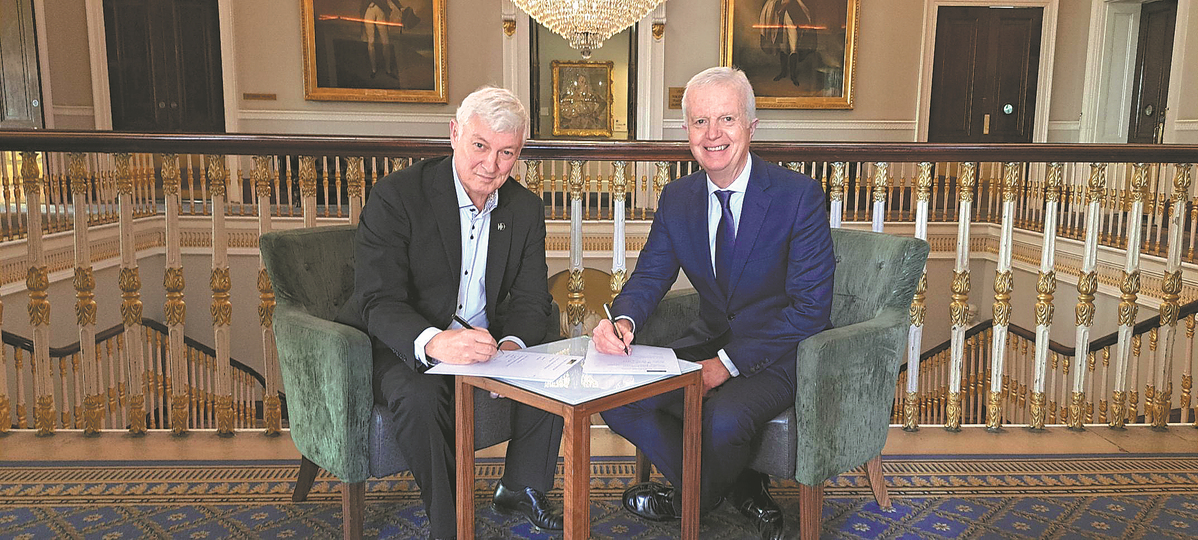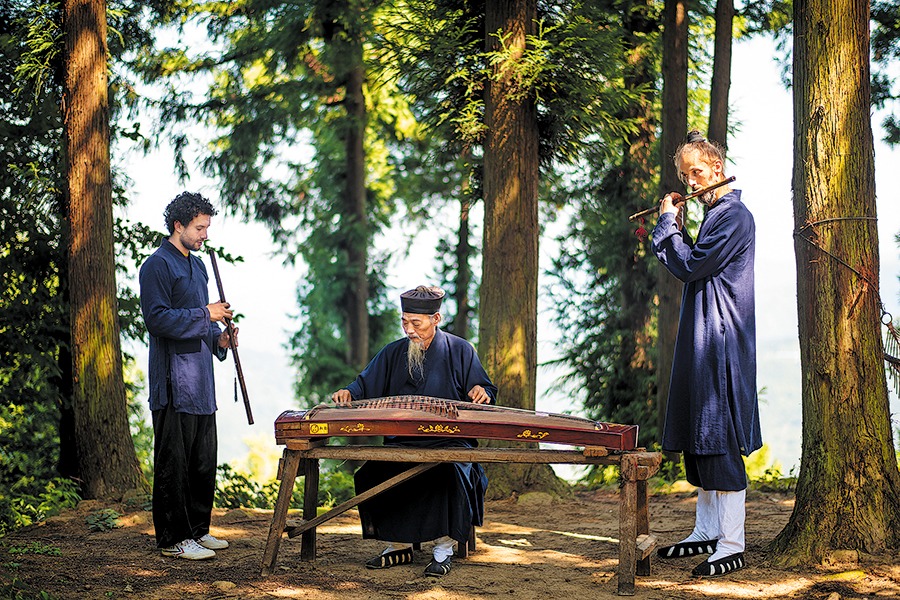Clearing Western misconceptions about China
UK business leader Jonathan Geldart seeks to portray a balanced perspective of the country through extensive experience

Editor's note: As the People's Republic of China celebrates the 75th anniversary of its founding this year, China Daily asked prominent international figures to reflect on their relationship with the country and to talk of the direction in which they see it going.

For many years, Jonathan Geldart has been saddened that the Western perspective of China and the Chinese is asymmetrical to the truth, while Western media, with a deep-rooted ignorance about the true China, continues to fuel misunderstanding and mistrust.
In response, Geldart seeks to provide a measured and even-handed perspective rooted in his prolonged engagement with China, hoping this would help Westerners gain an appreciation that their rather narrow view of China at a superficial level needs to be reviewed in light of the stories from the real lives of its citizens.
"My experiences of working in China and spending time with Chinese people taught me to question the old, accepted stereotypes," said Geldart, who wrote three books about China and is now director-general of the Institute of Directors, or IoD, a 120-year-old member community of business leaders and directors in the United Kingdom and beyond.
"There are good and not-so-good people in every country in every part of the world, but it does not mean that you should default to mistrust."
Geldart first set foot in China in 2008 during a four-day business conference in Shanghai, where he ventured into local streets to explore the city between work intervals.
"It was my first encounter with Chinese people, and I found it exciting and energizing. The friendliness and openness of the locals I met were wonderful. I was hooked on China from that trip forward," he said.
Shortly thereafter, he had a chance to visit Beijing and was later invited to collaborate with the Chinese division of a global accounting firm, where he served as the marketing and brands director on the global board.
"I thought I would be in China only for a few weeks, but I stayed for almost 10 years," he said.
For nearly a decade, he resided in Beijing but traveled extensively, from Northeast China's Heilongjiang province to Gansu province in the northwest to Hainan province in the south. He explored the country's diverse landscapes, including mountains and ravines, waterways and lakes, secluded hamlets and lively metropolises.
He was awed by the rich cultural tapestry and historical landmarks, from the imperial splendor of the Forbidden City in Beijing to the serene statue of the bodhisattva Guan Yin at the southernmost point of Sanya, Hainan province, and the tranquil beauty of the Humble Administrator's Garden in Suzhou, Jiangsu province.
Although Geldart was never formally taught the Chinese language, he enrolled in classes both in the UK and in Beijing, fitting them in when he could between a busy schedule. Slowly he came to learn enough to get by and to start to appreciate the complexity and nuance of the language.
"I started to read books on China and then the Chinese Classics, including The Romance of the Three Kingdoms, Journey to the West, Dream of the Red Chamber and Water Margin as well as I Ching, also known as The Book of Changes," he said. "I learned so much from those wonderful stories and wisdom."
Geldart said he experienced a very different China from the one that was being portrayed in the West and the Western media, and he came up with the idea of telling a more balanced story himself.
Based on his work as a businessman, he published The Thoughts of Chairmen Now in 2013, in which he shared wisdom from China's business leaders and entrepreneurs and a lot of insights for achieving sustained business success in China.
Thinking that there was a wider truth to be told about the people of China, apart from business, he then talked to more than 300 people in almost two years and published Notes From a Beijing Coffeeshop in 2015, which provides a series of fascinating observations of how people are really doing business and living in today's fast-changing China. Its sequel Inside the Middle Kingdom was published in 2017.
"Every Chinese I approached was wonderfully open-hearted and gave their time and thoughts with great warmth and humility. There was a common power and energy from all those I interviewed: the overwhelming feeling was of positivity about the country," he said.
Geldart said writing the books allowed him to scratch much deeper into the way of life of many ordinary Chinese and taught him a lot more than he would ever have got through just reading books or flying in and out to "do business".
"My approach in engaging with anyone about China is simply to tell my story as I know it. I try to navigate a middle way between the stereotypes and my experience to provide a calm and balanced perspective."
He said he acknowledges that people's personal views will be different but tries to offer explanations from his experience that all is not as they may believe.
"Ignorance is a terrible thing and many people I meet with negative perceptions about China are astonished when I tell them of the technology, infrastructure and innovations in China over even just the last few years.
"Add to that, the history, culture, complexity, variety and natural beauty of the country. And people are amazed. I remind people not to judge others by their standards of progress."































